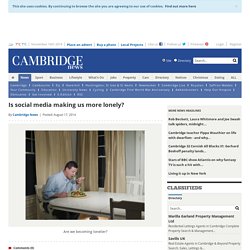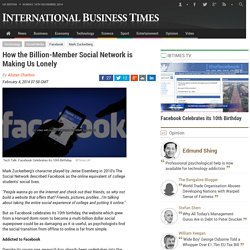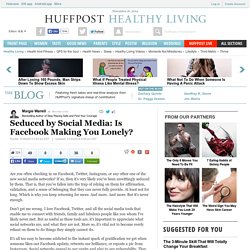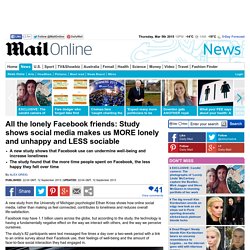

TED Quotes: Facts, insight and humor from TEDTalks — in shareable bites. Sherry Turkle: 'We're losing the raw, human part of being with each other' Bedraggled from a walk in the rain, Sherry Turkle shows up begging for a latte.

She's left her wallet in her hotel room. She's exhausted, she says, and could do with a coffee. "You can see it's not my most perky morning. But I'm really thrilled to be meeting with you. " These aren't just pleasantries – Turkle has a serious point to make. Turkle wasn't always this interested in technology.
So Turkle began to study the way that artificial intelligence was taking hold in everyday life, at a time when these interactions with machines were pretty raw. The place being MIT, home to some of the pioneers of artificial intelligence and social robotics, and the birthplace of perhaps the most sophisticated, and endearing, social robots. Turkle was "smitten with the subject and stayed with it for 30 years". Turkle frequently takes calls from journalists seeking comments on the latest story about robots in nursing homes, teacherbot programmes or nannybots to look after children. Is social media making us more lonely? Comments (0) Social media and academic life may help forge friendships for some people, but for others it seems they breed isolation and feelings of loneliness.

Figures published this week by the relationship support organisation Relate have shown that people are feeling increasingly unloved – with nearly 9 per cent saying they don’t have a close friend. And Cambridge, with its high transitory and academic population, may be more susceptible than most other major cities to loneliness.
Cogwheel, a local charity which provides counselling to Cambridge communities, has found that students and academics are particularly at risk to feeling alone. “Some of the students who come to us are emotionally exhausted and very isolated and don’t know how to break out of the circle of loneliness,” said a spokeswoman for Cogwheel. How the Billion-Member Social Network is Making Us Lonely. Tech Talk: Facebook Celebrates its 10th BirthdayIBTimes UK Mark Zuckerberg's character played by Jesse Eisenberg in 2010's The Social Network described Facebook as the online equivalent of college students' social lives.

"People wanna go on the internet and check out their friends, so why not build a website that offers that? Friends, pictures, profiles...I'm talking about taking the entire social experience of college and putting it online. " But as Facebook celebrates its 10th birthday, the website which grew from a Harvard dorm room to become a multi-billion dollar social superpower could be as damaging as it is useful, as psychologists find the social transition from offline to online is far from simple.
Addicted to Facebook Despite its young age, research has already been undertaken into the effects of being addicted to Facebook, and how a never-ending stream of news from the lives of friends can have a detrimental impact on our sense of well-being. Lurking rather than interacting Reuters. Seduced by Social Media: Is Facebook Making You Lonely? Are you often checking in on Facebook, Twitter, Instagram, or any other one of the new social media networks?

If so, then it's very likely you've been unwittingly seduced by them. That is, that you've fallen into the trap of relying on them for affirmation, validation, and a sense of belonging that they can never fully provide. At least not for long. Which is why you keep returning for more. And more. Don't get me wrong. It's all too easy to become addicted to the instant spark of gratification we get when someone likes our Facebook update, retweets our brilliance, or reposts a pic from Instagram. Research by the International Center for Media & Public Agenda (ICMPA) looked into the habits of social media users and revealed that as people invest time building ever more expansive social networks online, the quality of their offline networks and relationships diminishes.
The problem is multi-fold. The Innovation of Loneliness. Sherry Turkle: Connected, but alone? All the lonely Facebook friends: Study shows social media makes us MORE lonely and unhappy and LESS sociable. A new study shows that Facebook use can undermine well-being and increase lonelinessThe study found that the more time people spent on Facebook, the less happy they felt over time By Alex Greig Published: 22:04 GMT, 12 September 2013 | Updated: 22:04 GMT, 12 September 2013 A new study from the University of Michigan psychologist Ethan Kross shows how online social media, rather than making us feel connected, contributes to loneliness and reduces overall life-satisfaction.

Facebook may have 1.1 billion users across the globe, but according to the study, the technology is having a fundamentally negative effect on the way we interact with others, and the way we perceive ourselves. The study's 82 participants were text messaged five times a day over a two-week period with a link to an online survey about their Facebook use, their feelings of well-being and the amount of face-to-face social interaction they had engaged in. Social Networking, the Innovation of Loneliness.